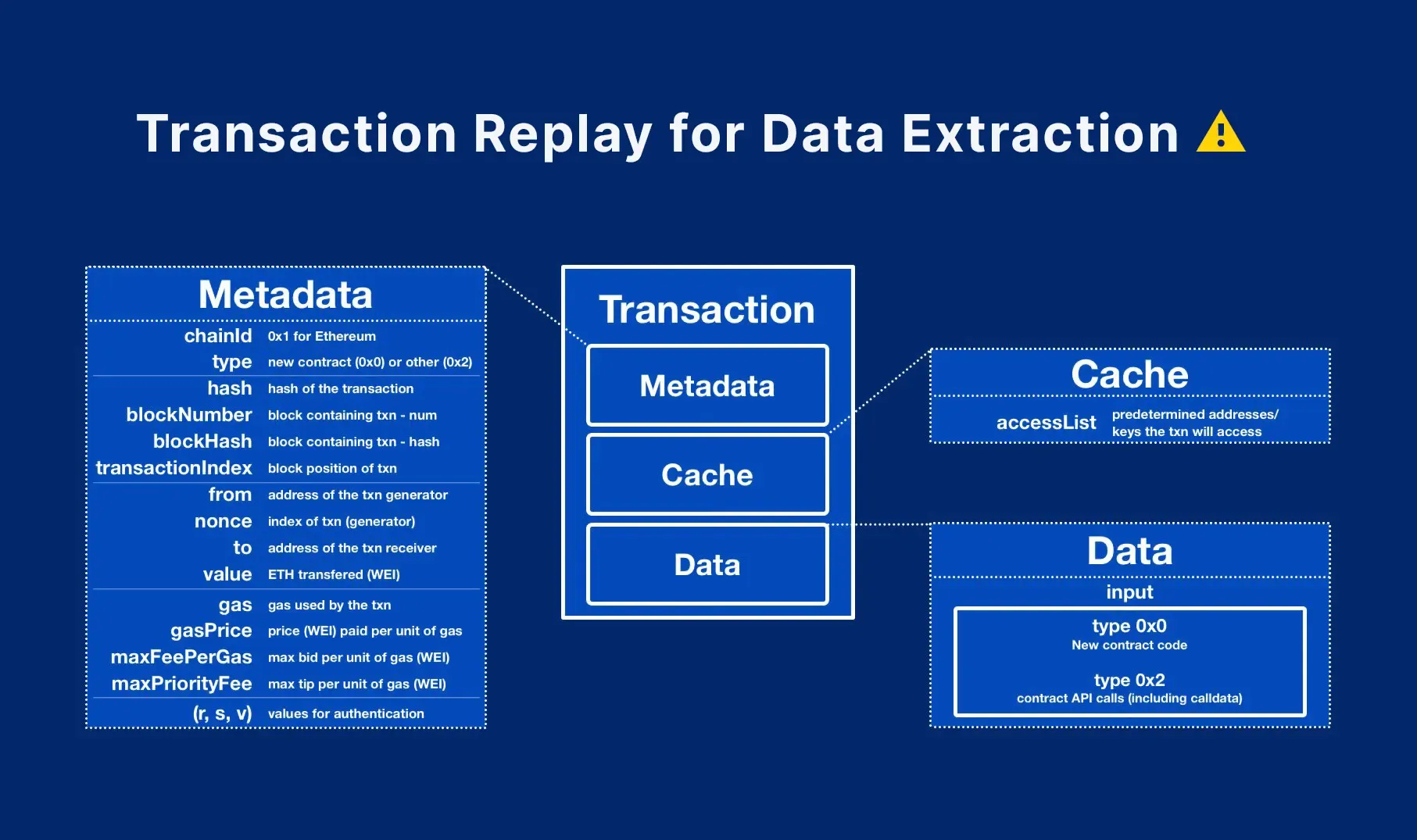When upgrading or migrating smart contracts, developers often rely on replaying transactions to replicate the state of the contract on a new chain. This approach, however, has significant limitations and misconceptions. The belief that transaction replay can fully provide the state of a smart contract is flawed. Here’s why:🚨

Limitations of transaction replay:
- Post-Replay Data Extraction: After replaying all transactions, the data still needs to be extracted from the new chain. Replaying transactions alone does not automatically transfer the state data; additional steps are necessary to ensure that the data is correctly transferred and accessible in the new environment.
- Variable and Mapping Association: Replaying transactions does not inherently provide an association of variables with their corresponding values. This is especially critical for mapping data structures, where keys and values must be accurately mapped. If the upgraded source code changes the data model, this complication is further exacerbated, making it difficult to maintain the integrity of the smart contract state.
- Timestamp Inconsistencies: Some smart contracts contain variables such as the timestamp (in seconds) of the current block. This value changes with each execution of the smart contract function, leading to discrepancies when replaying transactions. These inconsistencies can reduce the accuracy rate of transaction replay, as the same function executed at different times will yield different results.
- Sender’s Nonce Value: Each transaction hash includes the sender’s nonce value, which increments with each transaction. For transaction replay to be accurate, the sender’s nonce must match the nonce used in the transaction hash. This necessitates replaying all previous transactions of the sender to reach the specific nonce value. For a single smart contract, this means replaying all transactions from all senders involved with the contract. In the worst-case scenario, the entire blockchain may need to be replayed to achieve the specific state of the smart contract, leading to substantial computational and financial costs.
- Scope of Applicability: Transaction replay is only effective when migrating smart contracts without any changes in logic or state from one instance of the same blockchain network to another (e.g., from the Ethereum mainnet to a testnet). Any modifications to the smart contract logic or state model render transaction replay insufficient for accurately migrating the contract state.
Conclusion
While transaction replay can provide a partial solution for migrating smart contracts, its limitations make it an unreliable method for extracting and transferring the complete state of a contract. Accurate migration requires more sophisticated techniques to ensure the integrity and consistency of the smart contract’s state, especially when dealing with complex data structures, variable associations, and nonce values. Developers must consider these factors to avoid potential pitfalls and ensure a seamless migration process.
Reference: Storage state analysis and extraction of Ethereum blockchain smart contracts." ACM Transactions on Software Engineering and Methodology 32.3 (2023): 1-32.
